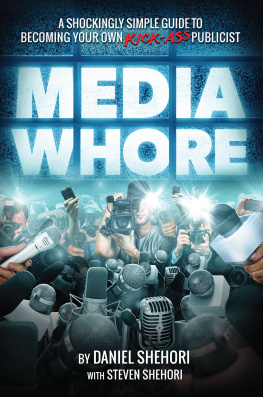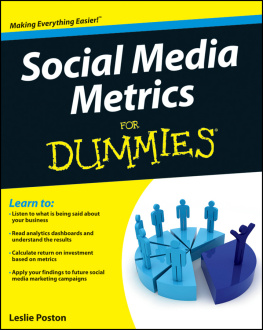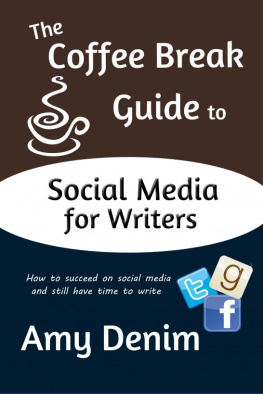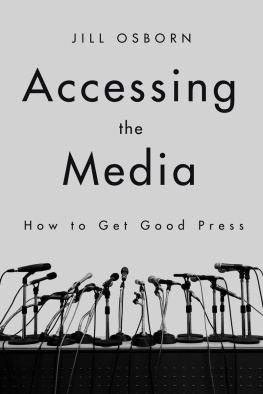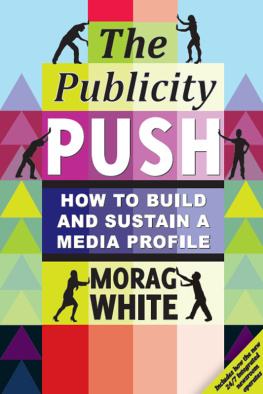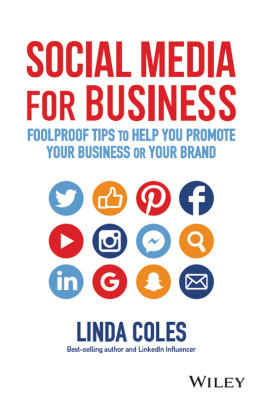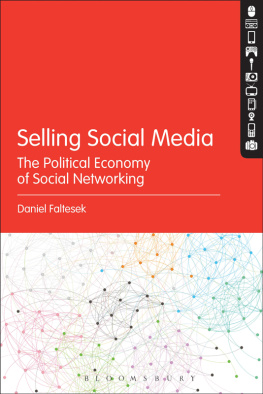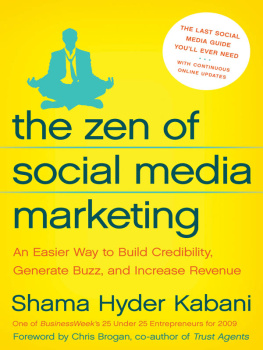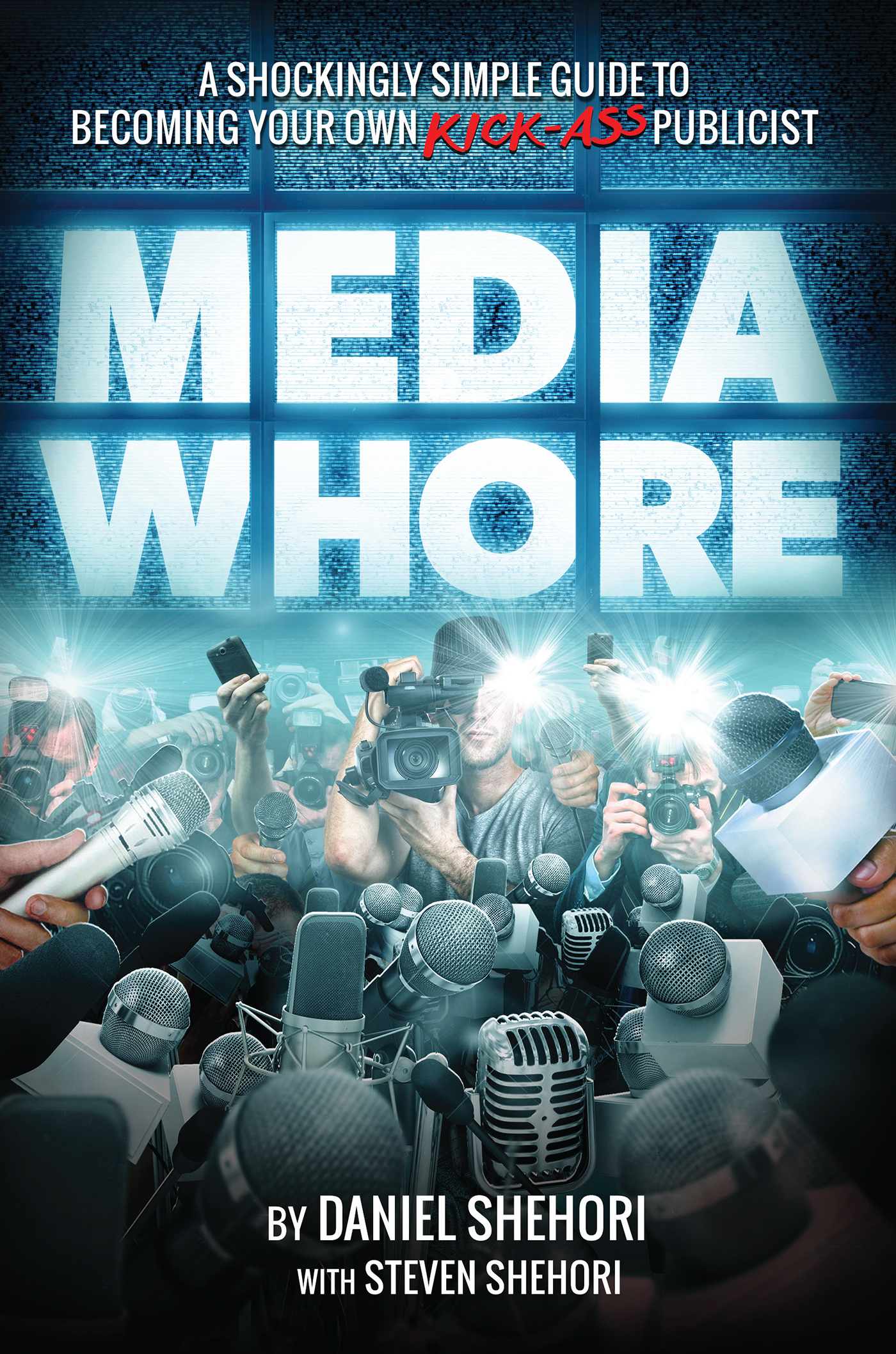Foreword
I grew up with the Shehori brothers.
Not in a the traditional we were neighbors or we were in kindergarten together kind of way (although Im sure they were adorable children). We grew up together professionally in Torontos comedy scene. Whether it was performing in Lucilles Ball at The Oasis, being a part of The Chick n Delis first ever comedy night, or participating in various sketch and stand-up shows at The Second Citys Tim Sims Playhouse, we collaborated on projects, explored characters, wrote scripts, produced plays, and generally found our way developing works of art that we thought were important and groundbreaking.
Some were.
And some certainly were not.
Thats what happens in comedy. It takes years to develop your voice. Over time, you try stuff, write stuff, workshop stuff, test stuff, and generally focus on taking the next step in the craft. The only goal is to deliver a line or a bit that connects with the audience and induces tears of laughter.
But it doesnt work if theres no one there to applaud.
Its the other side of performance that rarely gets talked about. While great artists can spend years developing their painting technique or musical ability or comedic timing, they often disregard the other critical skill needed to make it: Getting bums in seats so that you actually have an audience to perform to. As with the old if a tree falls in the forest , if an artist delivers an amazing show that no one sees, does it still count?
Ive always considered publicity to be the performance before the performance, and its for a completely different audience with different needs and different objectives. You think its tough connecting with an audience obsessed with the phones in their hands? Try connecting to an entertainment writer on a deadline who has 20 pitches and 35 press releases on his or her desk.
The Shehori Brothers always understood the live audience, but they also worked the publicity audience. Just as comedians take years to develop their craft, the Shehori Brothers rolled up their sleeves, ground it out, and spent years developing their publicity skills through experimentation, trial and error, common sense, and creative brilliance.
Thanks to their generosity, you dont have to do that. Everything theyve learned is here in convenient book form.
As they say in these pages, no one can sell you like you can sell you. Your work is far too important and youve spent a lot of time developing it. Dont stop there. Use the brilliance of this book to finish the job. Be your own media whore. Thanks to these guys, it has never been easier.
Enjoy the book. I know I did.
Ron Tite, Coauthor of Everyones an Artist (or At Least They Should Be) and CEO of The Tite Group
Introduction
There was a time I didnt know what a publicist was. I had a vague idea, assuming it was a person you called if you were a celebrity involved in a scandal you believed could only be remedied by some dramatic spin to the media. In some respects, I still dont really know what a publicist does, which is odd given my brother Steven and I have been calling ourselves publicists for many years. So if Im not entirely sure how to define this mystery profession, what am I suggesting weve been doing this entire time?
Ive since learned you can hire a person (a publicist) whose job it is to help you garner media attention for your art/show/sporting event/product/restaurant/book/business whatever it is youd like the public to be aware of. Like with all professions, the good ones tend to cost a lot of money.
If money isnt a concern, simply hire a publicist and give this book to a friend. (Unless youre reading this from your tablet that would be dumb.) Although before you do, ask yourself this question: How do I know if Im hiring a good one? Im not sure. Ive never paid for a publicist, but the good ones must exist. To be honest, I dont even know how the good ones go about it, or the bad ones for that matter. I only know how my brother and I do things, and weve developed a system thats served us and more importantly, our clients extraordinary well over the years. In fact, weve nabbed more mainstream media attention than I can begin to remember. Countless newspaper articles, reviews, magazine cover stories, radio interviews, national television spots, and all forms of online press. Weve felt grateful and fortunate to have helped new artists, charities, businesses, government organizations, and legends of multiple industries. This book lays out many years of methods discovered and brought about by love, fear, trial, and error.
1. Who and/or What Is a Media Whore?
Who or what is a media whore? Me, I suppose. Would you read a book simply called How to Get Media Attention? Perhaps you would. Placing a mildly controversial word in the books title to garner extra exposure is something I suspect a media whore would do.
In my opinion, the word media itself is not controversial. The word is not specific to gender as the word is neutral. I have been taught that every word is neutral until someone gives it meaning. Yet still it seems that this word media often has a negative connotation attached to it. Or perhaps, like the word itself, the media is neutral and it is me who has assigned negativity to it.
I constantly judge any news story in three different ways: Positive, negative, or neutral. What is a neutral news story? I would like to tell you that all stories are neutral, even though I dont treat them that way myself. Coverage of a sporting outcome (as long as you are not emotionally invested in the sport) can be considered neutral. If I am in a bar and glance up at the TV to see that Manchester United lost a soccer game to Real Madrid, this isnt positive or negative, as I dont personally care about European soccer. Or North American soccer, for that matter.
A high percentage of news stories from mainstream media outlets tend to land in the negative column, particularly stories from 24-hour news networks. I recall watching a news station in Toronto, one that has been very nice to me and has given me a ton of media attention over the years, so I wont call them out by name. Its not their fault if they report news stories I decide not to like. This station once reported a story about a dog jumping out of the back of a pickup truck and meeting its demise on a highway in California. Twenty-four hours is a lot of time to fill, so I understand sometimes they have to go out of their way to look for such stories when they cant find them locally. I remember thinking Why are you showing me this?
Again, the story was neutral regardless of my negative reaction to it. Some people dont care about dogs, never mind a dog in another country they didnt know existed prior to seeing this on TV. (These people are called jerks.)
As I make baseless assumptions about the motives of corporate media and the people that watch it, I may as well also make assumptions about you, the reader of this material. My assumption is that you are reading this because you wish to obtain media attention about something you love.
My actual understanding of what the term media whore really means is: Someone who will go out of their way to get media attention by almost any means necessary

